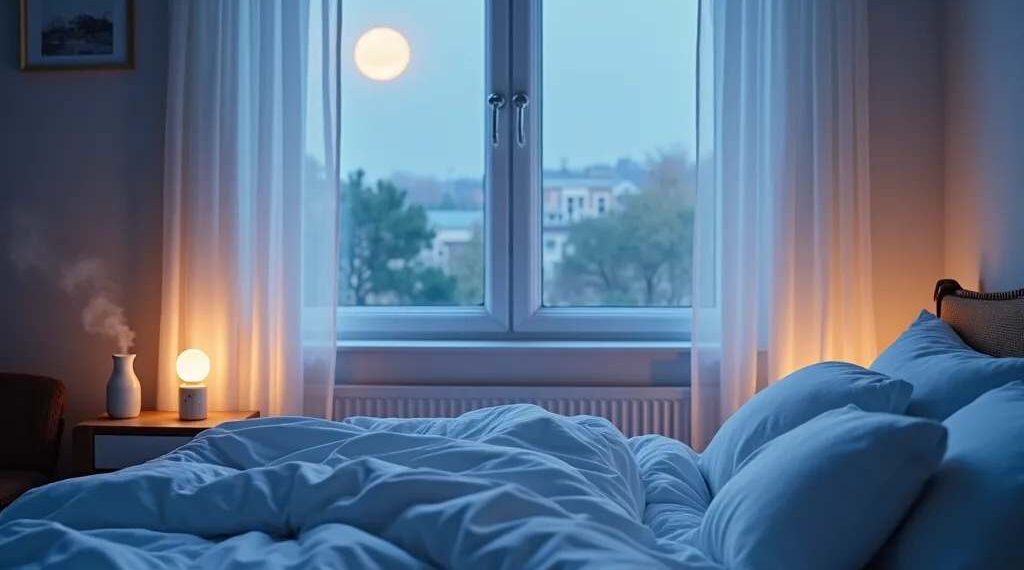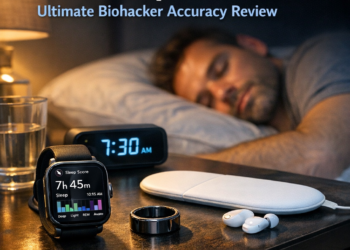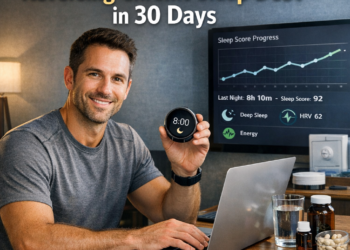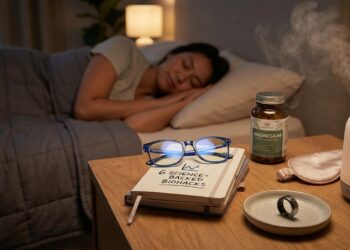Importance of Healthy Sleep Habits
Locking down a good night’s sleep is like finding that perfect slice of pie—it just makes everything better. Sleep, as fundamental as food or water, can tune up your well-being in ways you might not even realize.
Impact of Sleep on Overall Health
Sleep plays referee to your body and mind. Skimp on those z’s, and you may as well be cheering for team chaos. Lack of quality sleep can mess with everything from your germs-shooing antibodies to the hormones that help you stay sane. And don’t even get us started on memory fumbles and sluggish thinking.
| Health Aspect | Impact of Poor Sleep |
|---|---|
| Immune Function | Your body’s shields are down, inviting those pesky colds. |
| Weight Management | Packing on pounds becomes easier than ordering take-out. |
| Mental Health | Anxiety and blues come knocking when you’re sleep-deprived. |
| Cognitive Function | Memory works like Swiss cheese; you keep forgetting half the things. |
Giving sleep its due means opening the door to better health vibes and mood boosts. It’s like having a secret weapon for making life work smoothly.

Benefits of Establishing Healthy Sleep Habits
Shaping your sleep game into something solid brings plenty of perks. Think of it as setting the stage for better mood and mindfulness that sticks around.
| Benefit | Description |
|---|---|
| Enhanced Mood | Sleep well, and say goodbye to mood swings and being a grump. |
| Improved Focus | Hello productivity! Also, who doesn’t like catching all the details? |
| Reduced Stress | Sleep is the chill pill you can take without a prescription. |
| Better Physical Health | It’s easier to keep the waistline in check and the immune system ready to rumble. |
Folks aiming to up their sleep game might find gold in methods like a consistent sleep schedule or giving a whirl to bedtime rituals. Tuning sleep quality isn’t just a chore but a treat for mind and body. Peeking at our evening habits for better sleep and digital detox for sleep might tip the scales in your favor too. Because, admit it—sleep’s one partner you don’t want to break up with.
Setting the Stage for Quality Sleep
Getting the right vibe and routine can make a world of difference in how well you snooze. By tuning into a calm sleep space and sticking to a regular bedtime plan, folks can build habits that lead to solid, refreshing sleep.
Creating a Restful Sleep Environment
Your sleep zone is crucial in helping you catch those Z’s. A cozy atmosphere cuts out distractions and cranks up the relaxation. Here’s a rundown to make your snooze space sweet as a dream:
| Thing to Tweak | What to Try |
|---|---|
| Temperature | Dial down the thermostat to around 60-67°F (15-19°C) for the best sleep comfort. |
| Lighting | Blackout curtains are your friend; dim the lights an hour before hitting the hay. |
| Noise | Keep it quiet with soundproofing or let a white noise machine be your lullaby. Learn more about white noise machines for sleep. |
| Bedding | Find that just-right mattress and snuggly bedding that suits your style. |
| Clutter | Tidy up your bedroom for a calming and relaxing vibe. |
Getting into evening habits for better sleep can also help ease you into a chill mindset before bed.
Establishing a Consistent Sleep Schedule
Keeping a steady sleep routine syncs up your body’s clock, helping you conk out and wake up without a hitch. Following a regular pattern can cut down on sleep disruptions and boost the overall snooze quality. Here’s how to nail down a routine:
| What to Focus On | Advice |
|---|---|
| Sleep Duration | Shoot for 7-9 hours of sleep every night—tweak to fit what your body tells you it needs. |
| Bedtime & Wake Time | Have a set bedtime and wake-up time, even on weekends, to dodge that dreadful sleep debt. |
| Pre-Sleep Routine | Try calming activities before bed, like writing down your thoughts or the 4-7-8 breathing trick. |
Folks with irregular work hours, like night owls pulling shifts, might find circadian rhythm reset tips handy for adapting their sleep timetables.
Focusing on these ground rules helps folks craft a sleep space and schedule that promotes dreamy rest and adds to their overall happiness. For extra snooze guidance, check out our guide on sticking to a consistent sleep schedule.
Understanding Your Sleep Needs
Getting your Zzzs in check is all about knowing what your body really craves at night. Every age group has its bedtime sweet spot, and a bunch of things can throw a wrench in your sleep cycle.
Recommended Hours of Sleep for Different Age Groups
As you grow, your snooze button needs a bit of fiddling. Here’s the deal on how much shut-eye folks at different stages of life generally aim for:
| Age Group | Recommended Hours of Sleep |
|---|---|
| Newborns (0-3 months) | 14-17 hours |
| Infants (4-11 months) | 12-15 hours |
| Toddlers (1-2 years) | 11-14 hours |
| Preschoolers (3-5 years) | 10-13 hours |
| School-aged children (6-13 years) | 9-11 hours |
| Teenagers (14-17 years) | 8-10 hours |
| Adults (18-64 years) | 7-9 hours |
| Seniors (65+ years) | 7-8 hours |
Remember, these are more like friendly suggestions rather than strict rules. What matters is how you feel.
Factors Affecting Individual Sleep Needs
Several curveballs can mess with how much sleep you actually need:
- Lifestyle: If you’re running marathons or chasing after kids, you’ll likely crash harder at night. Couch potatoes might not need as much snooze time.
- Stress and Mental Health: Stress is like a sleep thief. Feeling stressed or wrestling with mental health bumps up the need for more pillow time.
- Health Conditions: Living with conditions like sleep apnea or insomnia means you’ll battle more for rest than others.
- Genetics: Your sleep habits may also be part of your family’s calling card. Some folks are just built to sleep more or less.
- Sleep Quality: A restless night can add hours to your sleep tally. Brush up on good sleep habits if you’re waking up more tired than a Monday morning.
Finding your perfect sleep groove might also mean sticking to a routine bedtime and kicking off calming bedtime habits to ease the drift into dreamland.
Practicing Good Sleep Hygiene
Getting quality shut-eye is like finding the holy grail of refreshment. It’s crucial for feeling on top of your game and not snapping at the cat for no reason. Let’s jump into some relatable tips that can help you sleep like a log.
Turning Off Screens Before Hitting the Hay
If you’re looking to catch the Zzzs of your dreams, limiting your time in front of gadgets is non-negotiable. The bluish glare from devices like your phone, tablet, or laptop can mess with melatonin—think of it as the sandman’s best buddy. Cutting down on screens about 30 to 60 minutes before you hit the sack can make a huge difference.
| Screen Type | Time to Cut Off Before Bed |
|---|---|
| Smartphones | Half an hour |
| Tablets | Half an hour |
| Computers | An Hour |
| TV | An Hour |
For more on dodging the screen-life blues, swing by our digital detox for sleep page.
Giving Stimulants the Cold Shoulder Before Bedtime
Caffeine and nicotine are sneaky villains when it comes to keeping you on your toes when you should be sawing logs. That afternoon coffee run? It could be the reason you’re staring at the ceiling at 2 AM. Wise up and steer clear of these eye-openers a few hours before lights out.
| Stimulant | Lay Off Before Snooze Time |
|---|---|
| Caffeine (coffee, tea, sodas) | 4 to 6 hours |
| Nicotine | 4 to 6 hours |
| Alcohol | 2 to 3 hours |
Wanna snooze like a pro? Peek at our evening habits for better sleep for some life-changing rituals.
Chill Out with Relaxation Techniques
Adding a calm-down routine before bed can make the lullaby work faster. Whether it’s breathing like a chill yoga master or pretending you’re meditating on a serene mountain top, these strategies can coax you into sleep with grace.
| Relaxation Method | What’s It All About? |
|---|---|
| Deep Breathing | Breathe deeply; in for 4, hold for 7, out for 8. |
| Meditation | Use apps or guided meditations to focus on chill vibes. |
| Light Stretches | Do a little yoga or stretching to unwind your brain. |
For a step-by-step roadmap to being a pre-sleep ninja, look at our pre-sleep routine.
With these sleep hygiene gems in your toolkit, you can create a bedroom utopia that zaps you into dreamland and makes waking up a happier experience.
Routines for Special Groups
Getting decent shut-eye isn’t the same for everyone. Your kid doing cartwheels at 10pm or your night shifts turning you into a sleep-deprived zombie? Those life quirks demand some special bedtime strategies. Let’s uncover routines to make sleep your best buddy again, no matter who you are.
Tips for Parents to Establish Children’s Sleep Routines
Nailing down a solid bedtime routine for your little ones is like giving them a passport to Dreamland. Here’s how to lock it in:
- Consistent Bedtime: Stick to the same bedtime and rise time every day, even when your weekend vibes scream “sleep in!” It helps set the body’s alarm clock. Check out our tips on a consistent sleep schedule.
- Bedtime Rituals: Wind down with chill activities that say, “Hey, it’s sleep o’clock!” Whether it’s reading stories, stretching like a mini-yoga master, or having quiet chats, clue them in that it’s snooze time soon. Dive deeper into bedtime rituals.
- Comfortable Sleep Environment: Transform their room into a sleep-friendly zone. Think comfy mattress, soft lights, and a cool breeze.
- Limit Screen Time: Pull the plug on screens at least an hour before bed. Swap screen time for a digital detox for sleep.
| Age Group | Recommended Sleep Duration |
|---|---|
| Infants (0-3 months) | 14-17 hours |
| Toddlers (1-2 years) | 11-14 hours |
| Preschoolers (3-5 years) | 10-13 hours |
| School-aged (6-13 years) | 9-11 hours |
Strategies for Shift Workers to Manage Irregular Sleep Patterns
Shift work, a sleep thief if there ever was one. Here’s how to shake off that groggy feeling:
- Create a Sleep Sanctuary: Shut out the world with a dark, quiet, cool room. Blackout curtains and a bit of white noise can turn your space into a sleep haven.
- Pre-Sleep Routine: After the grind, unwind with a routine that chills you out. Try the magic of the 4-7-8 breathing technique to relax.
- Power Naps: Sneak in some Zs with short 20-30 minute naps. Enough to recharge without diving into deep sleep, so waking up isn’t a nightmare.
| Shift Type | Recommended Sleep Duration |
|---|---|
| Night Shift | 7-9 hours (after work) |
| Early Shift | 7-9 hours (before work) |
| Rotating Shift | 6-8 hours (with naps if needed) |
Addressing Age-Related Sleep Changes in Seniors
Aging often tweaks how and when we sleep. Here’s how to catch those z’s gracefully:
- Regular Sleep Schedule: Keep a steady sleep routine to help your body clock stay on track.
- Daytime Activities: Move around a bit more during the day to sleep better at night. Studies say exercise and sleep quality are besties.
- Limit Naps: Cat naps are fine but keep them under 30 minutes and steer clear of late afternoon naps to avoid messing up nighttime sleep.
- Monitor Sleep Patterns: A sleep journal might reveal sleep wreckers and what’s working like a charm.
By tweaking these practices, parents, shift warriors, and seniors can help tip the scales toward healthy sleep habits that fit their lives, boosting both happiness and health along the way.
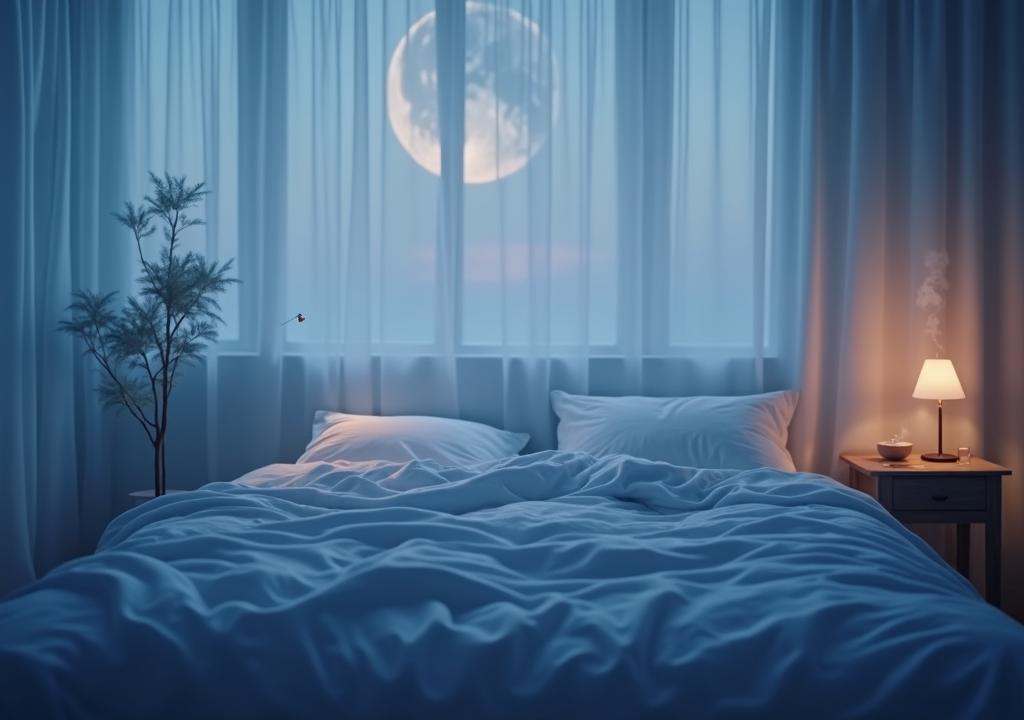
Overcoming Common Sleep Issues
Lots of folks battle sleep troubles like insomnia and just plain restless nights. Figuring out how to tackle these can really bump up your sleep game and boost how you feel all around.
Dealing with Insomnia
Insomnia is when you can’t fall asleep, stay asleep, or you wake up at crazy hours. There are all kinds of ways to deal with it. Here are some you might want to try:
| Strategy | What’s It About? |
|---|---|
| Sleep Hygiene | Keeping your sleep space neat and cozy can do wonders. Wanna know how to set the stage? Take a peek at our sleep hygiene tips. |
| Consistent Sleep Schedule | Going to bed and waking up at the same time can make catching Zs a breeze. See how to stick to a consistent sleep schedule. |
| Cognitive Behavioral Therapy for Insomnia (CBT-I) | It gets into the nitty-gritty of what’s keeping you up and flips it on its head. Dive into details in our CBT-I guide. |
| Relaxation Techniques | Chilling out with deep breaths or meditation can quiet that racing mind. Try the 4-7-8 breathing technique for starters. |
Managing Restless Sleep
Restless sleep might look like waking up a lot or just never feeling rested. Check out some ways to calm those nighttime jitters:
| Method | What’s It About? |
|---|---|
| Pre-Sleep Routine | A laid-back routine can tell your body it’s time to chill. Peek at ideas for a relaxing pre-sleep routine. |
| Evening Habits | Ditch the screens and all that jazz before bed. For more on night-friendly habits, check out evening habits for better sleep. |
| Exercise Regularly | Breaking a sweat does wonders for snooze time. Find out how exercise helps sleep. |
| Sleep Journaling | Jot down your sleep woes and patterns. It’s great for spotting trends. Curious how? Dive into sleep journaling. |
Tackling sleep issues takes a bit of everything: checking out your own routines and maybe mixing things up a bit. Give these tips a try and you just might find yourself drifting off into dreamland with less hassle, leading to better mornings and brighter days.
When You Might Need a Pro to Sleep Better
Hey, we’ve all been there—tossing and turning, counting sheep that just refuse to cooperate. Sometimes, though, these sleep hiccups can turn into full-on slumber showstoppers. That’s when calling in the experts might be the ticket to a good night’s rest.
Ringing the Alarm with Your Doctor
Time to dial up the doctor’s office if you’ve been battling with the Sleep Villains below:
| What’s Buggin’ You? | What’s Going Down? |
|---|---|
| Can’t Stay Asleep? | Struggling with falling or staying asleep for over three nights a week? Yeah, that’s a cue. |
| All-Day Snooze Fest | Perpetual yawning and feeling like your eyelids weigh a ton even after coffee? |
| Snoring Symphony | Snore like a freight train and wake up like you ran a marathon? Might be time for a chat. |
| Stress Got You Wired? | Mind running marathons about stress or anxiety keeping you that wired-free mode? |
| Ouch, That Hurts | Living with pain that insists on crashing your sleep party? |
| Sleep’s Gone Bonkers | Sleep pattern doing the cha-cha and messing with your day mojo? |
If you’re riding the insomnia struggle bus, tagging-in a healthcare coach can spotlight hidden culprits and sketch out a game plan.
How to Wrestle the Sleep Beast
So you’ve dream-jacked by insomnia town, what next? Gear up with these tactics:
| Stop Snooze Sabotage | Here’s the Deal |
|---|---|
| Brain Workouts (CBT-I) | Zap those nasty thoughts keeping you up. Get guidance on retraining that mind muscle. Check out more here. |
| Sweet Z Meds | Sometimes, you need a little buddy—a sleep aid buddy. But only if your healthcare buddy says thumbs up. |
| Nighttime Routine Revamp | Set the stage with better sleep hygiene and nail down a solid sleep schedule. |
| Chill Pill Methods | Go zen with breathing tricks like 4-7-8 breathing, meditation apps, or peaceful practices. |
| Peek at Your Sleep | Fancy a sleep study? Dive deep to sniff out those sleep snafus like sleep apnea. |
Spot the signs and make the move—because a good snooze is a treat not to sleep on. Check out our wisdom on sleep habits and making nighttime your best time at evening habits.
Conclusion
The journey to better sleep isn’t just about logging more hours under the covers—it’s about revolutionizing your relationship with rest. From creating the perfect sleep sanctuary to understanding your unique sleep needs, every step toward better sleep habits is a step toward a more vibrant, productive, and balanced life. Whether you’re a busy parent, a shift worker, or someone simply seeking more restful nights, implementing these evidence-based strategies can help you unlock the transformative power of quality sleep. Remember, good sleep isn’t a luxury—it’s a fundamental pillar of health that deserves your attention and care. By making sleep a priority today, you’re investing in a healthier, happier tomorrow.
FAQs
Q1: How many hours of sleep do adults really need?
A: Most adults need 7-9 hours of quality sleep per night, though individual needs may vary slightly based on genetics, activity level, and overall health.
Q2: What’s the best bedroom temperature for sleeping?
A: The ideal bedroom temperature for sleeping is between 60-67°F (15-19°C), as cooler temperatures help facilitate the natural drop in body temperature that occurs during sleep.
Q3: How long before bed should I stop using electronic devices?
A: Aim to stop using electronic devices at least 1-2 hours before bedtime to minimize exposure to blue light, which can interfere with your natural sleep-wake cycle.
Q4: Can naps make up for lost sleep at night?
A: While short naps (20-30 minutes) can help improve alertness, they can’t fully compensate for inadequate nighttime sleep. Consistent, quality nighttime sleep is essential for optimal health.
Q5: What should I do if I can’t fall asleep after 20 minutes?
A: If you can’t fall asleep after 20 minutes, get up and do a calming activity in dim light (like reading or gentle stretching) until you feel sleepy, then return to bed.
Q6: How does exercise affect sleep quality?
A: Regular exercise can improve sleep quality and duration, but it’s best to complete vigorous exercise at least 3-4 hours before bedtime to allow your body temperature and heart rate to decrease.
Additional Resources and Authority References
- National Sleep Foundation: Sleep Guidelines and Research
- Harvard Medical School Division of Sleep Medicine: Sleep and Health Education
- CDC – Sleep and Sleep Disorders: Public Health Resources
- American Academy of Sleep Medicine: Clinical Resources
- Sleep Research Society: Latest Sleep Studies

